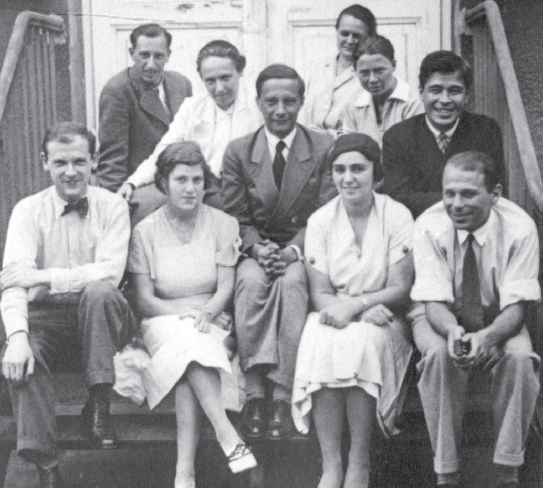[12] March 27 - The scientific community
Section outline
-
"The scientist today cannot practice his calling in isolation," wrote Hungarian chemist Michael Polanyi in 1942. "He must occupy a definite position within a framework of institutions. A chemist becomes a member of the chemical profession; a zoologist, a mathematician or a psychologist—each belongs to a particular group of specialized scientist. The different groups of scientists together form the scientific community." Jewish and twice exiled, Polanyi did not invariably appeal to the global fungibility of the scientific community and its universal ideas, but was more intent on establishing the conditions of its "self-government." Its formation was constrained by history, culture, and tradition.
Discussion leader: Laszlo
Michael Polanyi, "The autonomy of science" The Scientific Monthly 60 (1945 [1943]): 141-150.
Thomas S. Kuhn, "Progress through revolutions," The Structure of Scientific Revolutions (1962), 160-173. [Numerous copies available in library: 501 KUH.]
Suggested reading:
Robert K. Merton, “A note on science and democracy,” Journal of Legal and Political Sociology 1 (1942): 115–126.
Mary Jo Nye, Michael Polanyi and His Generation: Origins of the Social Construction of Science (Chicago: University of Chicago Press, 2011).Struan Jacobs, “Models of Scientific Community: Charles Sanders Peirce to Thomas Kuhn,” Interdisciplinary Science Reviews 31, no. 2 (June 1, 2006): 163–73.Grigorii Iudin, "Иллюзия научного сообщества," Sotsiologicheskoe obozrenie 9 no. 3 (2010): 57-84.Chad Wellmon, Organizing Enlightenment: Information Overload and the Invention of the Modern Research University (Baltimore: Johns Hopkins University Press, 2016).Michael Polanyi, Personal Knowledge (1958).Michael Polanyi, “The Republic of Science: Its Political and Economic Theory,” Minerva 1 (1962): 54–73.Philip Mirowski, “On Playing the Economics Trump Card in the Philosophy of Science: Why It Did Not Work for Michael Polanyi,” PSA Proceedings 64 (1997): S127–38.Florian Znaniecki, “Przedmiot i zadania nauki o wiedzy,” Nauka polska 5 (1925): 1–78.Max Scheler, Die Wissensformen und die Gesellschaft (1926).-
Uploaded 15/07/24, 15:15
-
Uploaded 15/07/24, 15:15
-

